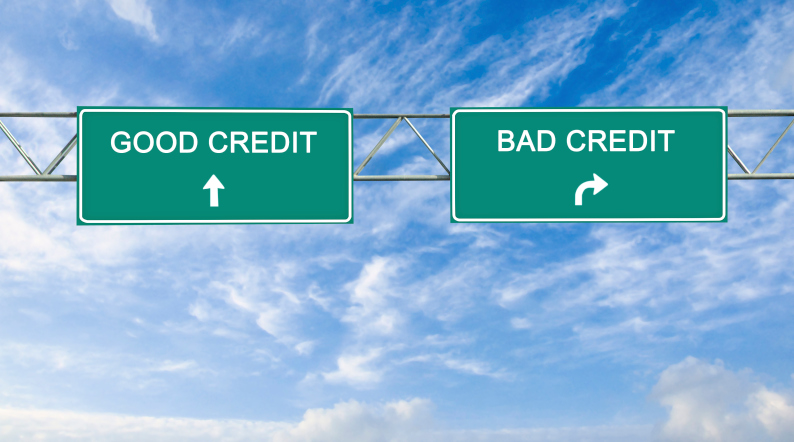Boosting Your Credit Score To Qualify For Better Rates

The better your credit score, the better the mortgage interest rate for which you should qualify. That can mean thousands of dollars saved over the life of the mortgage. If your credit score needs improving, get started prior to your search for a new home.
Pay Bills On Time
The simplest way to boost your credit score is by ensuring your bills are always paid on time. Nothing harms a credit score more than late payments.
Check for Credit Report Errors
Check your credit reports for any errors. These issues are not uncommon, and can really impact your score. Each of the three major credit card reporting bureaus –Equifax, Experian, and TransUnion –will provide you with a free annual report.
Credit Utilization Rate
Look into your credit utilization, or CU, rate. The CU rate is another big credit score consideration. Your CU rate is the amount of credit authorized versus the amount you use. It’s one reason maxing out your credit cards is not a wise move.
Never allow your CU rate to exceed more than 30 percent of your available credit. In simple terms if you have $1,000 in available credit, never use more than $300. High CU rates are a red flag, as they indicate someone with potential financial problems. For best results, keep your CU rate as low as you can.
Calculate your CU rate by adding up the credit limits on all cards, as well as the balances. Divide the total balances by the total credit limit, then multiply by 100. That amount is your CU rate percentage.
Reduce Your Debt
If you carry credit card debt, pay it down as much as possible. That also helps lower your CU rate.
Avoid Opening New Credit Card Accounts
Do not open new credit card accounts while trying to boost your credit score. A new account lowers the age of your accounts, affecting your credit history and lowering the CU rate.
Do Not Close Unused Credit Card Accounts
Do you have credit cards you never use? You might think closing them would boost your credit score, but that is not how it works. When you close the account, the amount of credit you have drops. That triggers a CU rate increase.
Refinancing Credit Card Debt
If you have substantial credit card debt, consider refinancing all of it with a personal loan. You should receive a lower interest rate with your balances now merged into a single monthly payment. This also causes your CU rate to go down.
How Long Will It Take?
How long it will take to improve your credit score depends on the severity of your credit problems. Those with serious credit issues may find it takes years to raise their scores significantly, but most people should see improvement within a few months. Then it is time to think about mortgage shopping!

 There are lots of people who are looking to take advantage of low interest rates to refinance their homes. This provides homeowners with an opportunity to save tens of thousands of dollars over the life of the loan. It could also allow homeowners to access equity to finance a home renovation or shave years off their mortgage. On the other hand, there are also a lot of people who make mistakes during the refinancing process. What are some of the mistakes that everyone should make sure they avoid?
There are lots of people who are looking to take advantage of low interest rates to refinance their homes. This provides homeowners with an opportunity to save tens of thousands of dollars over the life of the loan. It could also allow homeowners to access equity to finance a home renovation or shave years off their mortgage. On the other hand, there are also a lot of people who make mistakes during the refinancing process. What are some of the mistakes that everyone should make sure they avoid? This has been a difficult year for everyone. There are a lot of people who are worried that they might not be able to keep up with their mortgage payments. Small businesses have had to close their doors and numerous individuals have been laid off from work.
This has been a difficult year for everyone. There are a lot of people who are worried that they might not be able to keep up with their mortgage payments. Small businesses have had to close their doors and numerous individuals have been laid off from work. If you’re thinking of buying a home, you’ve probably been thinking a lot about your credit score as well. Credit scores control so much of what we do in the world of finances, but what does your credit score really have to do with your mortgage? Here are three ways that your credit score could impact your mortgage application.
If you’re thinking of buying a home, you’ve probably been thinking a lot about your credit score as well. Credit scores control so much of what we do in the world of finances, but what does your credit score really have to do with your mortgage? Here are three ways that your credit score could impact your mortgage application. Currently, this is a great time to be in the market for a new home. The interest rates on mortgages have fallen countless times over the past few years. Even though interest rates have been in the double-digits in the past, there are homeowners today who are able to agree to a mortgage for less than three percent.
Currently, this is a great time to be in the market for a new home. The interest rates on mortgages have fallen countless times over the past few years. Even though interest rates have been in the double-digits in the past, there are homeowners today who are able to agree to a mortgage for less than three percent.